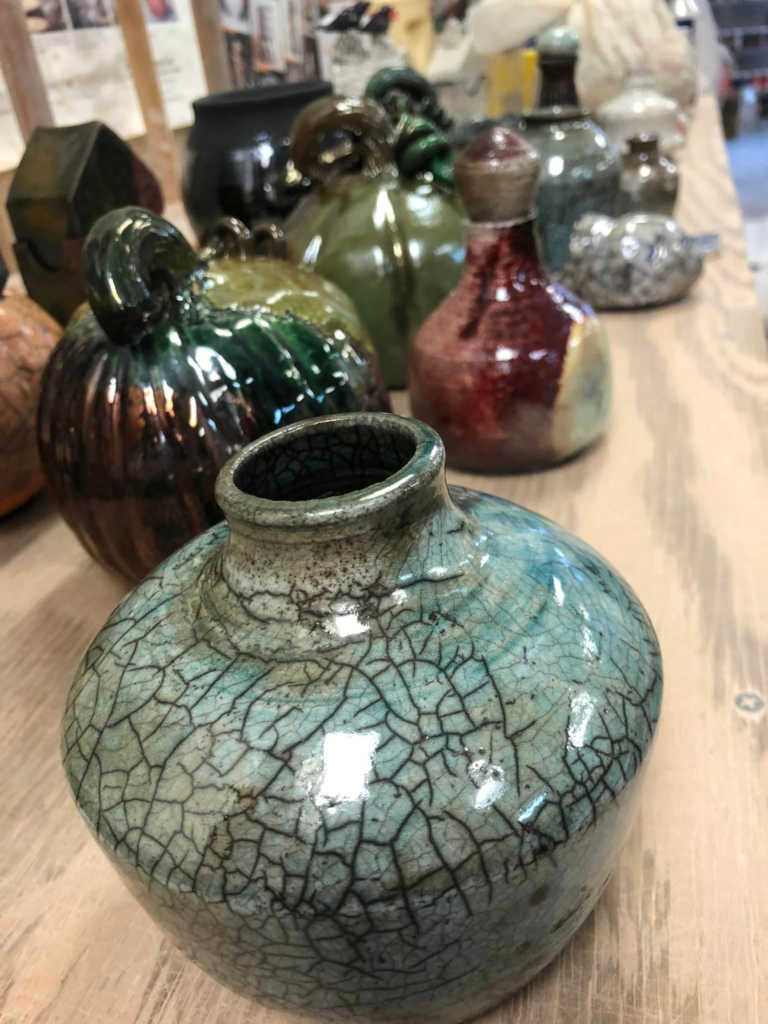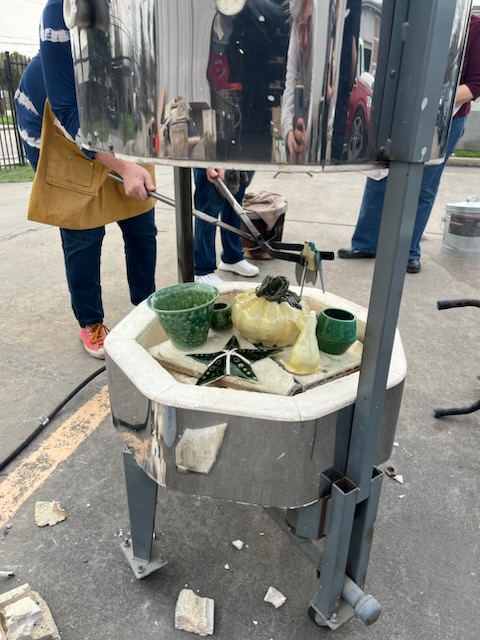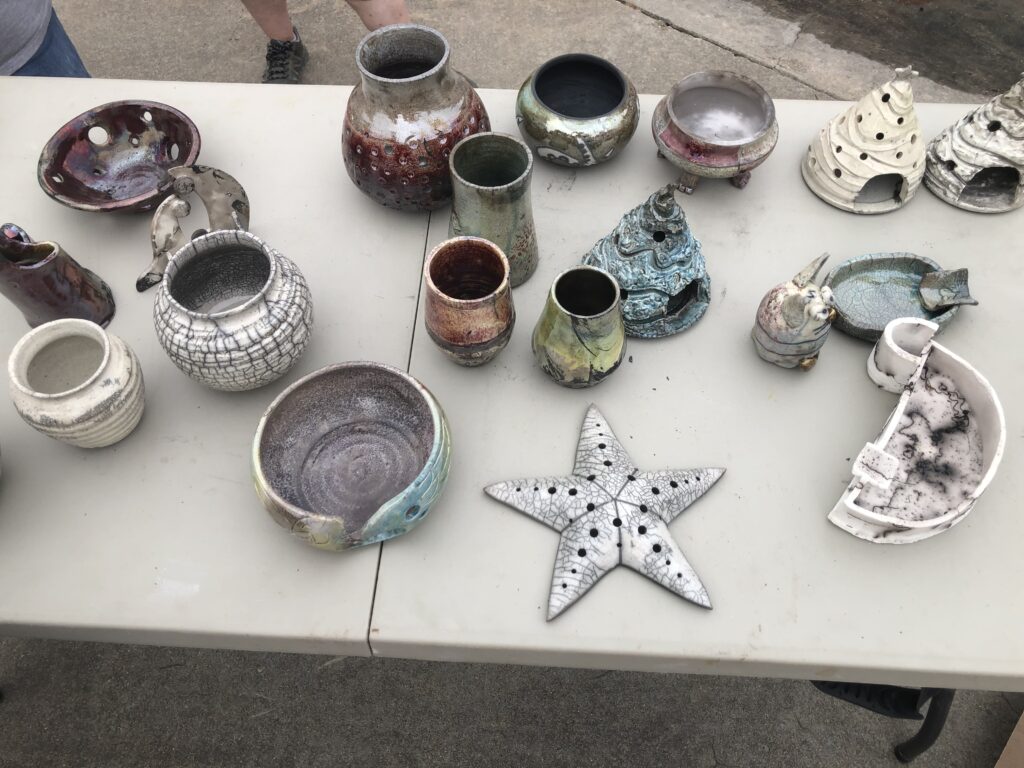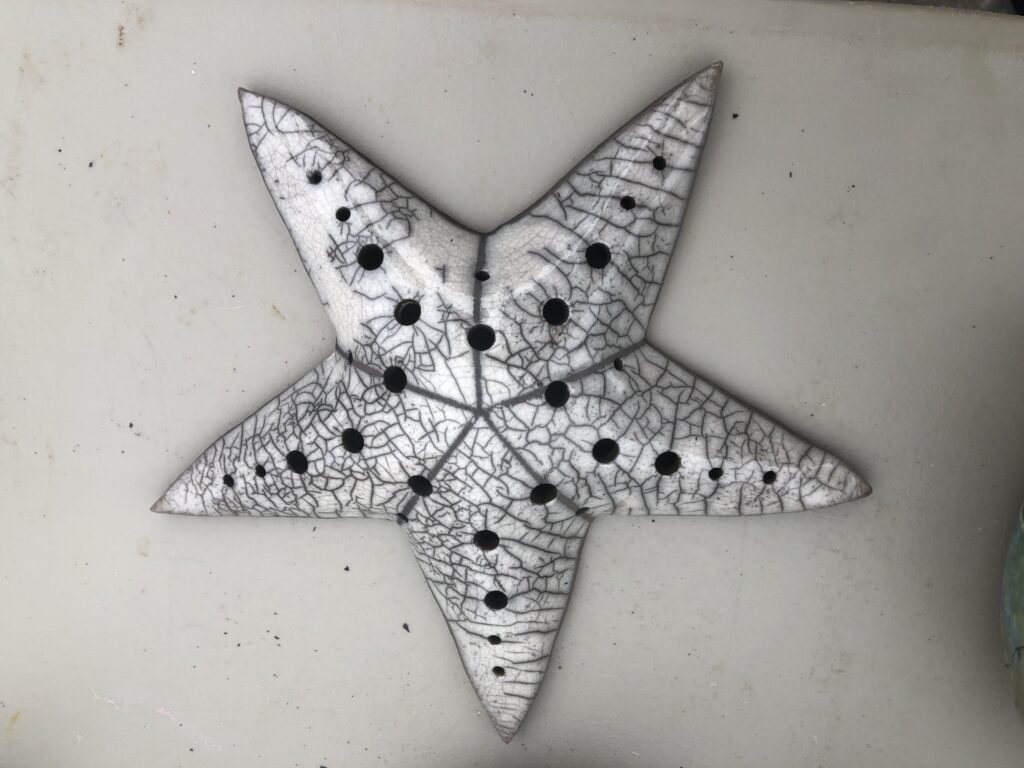


Raku pottery is a type of Japanese pottery that is traditionally made using a low-temperature firing technique. Here are the basic steps for creating raku pottery:
Preparation: First, you will need to gather all the necessary materials and tools, including clay, a pottery wheel (or hand-building tools), glazes, and a kiln. Raku clay is a special type of clay that is formulated to withstand the thermal shock of the raku firing process.
Creating the form: Use the clay to create the desired form of the pottery piece using a pottery wheel or hand-building techniques such as coiling or slab building. Raku pottery can be any shape or size, but traditional forms often include tea bowls, vases, and plates.
Drying and bisque firing: Once the pottery piece is formed, it needs to dry completely. After drying, it is bisque fired in a kiln at a low temperature, typically around 1050 degrees Celsius (1925F), to harden the clay and prepare it for glazing.
Glazing: Raku glazes are specially formulated to withstand the high temperatures of the raku firing process. Apply the glaze to the bisque-fired piece using a brush or dip it into the glaze.
Raku firing: The raku firing process involves heating the pottery piece in a kiln to a high temperature, typically around 1000-1050 degrees Celsius (1850-1900F), and then quickly removing it from the kiln and placing it in a container filled with combustible material such as sawdust or straw. The heat and smoke from the combustible material create a unique pattern and coloration on the glaze and the clay body of the pottery piece.
Post-firing: After the pottery piece has cooled, remove it from the container and gently clean it to remove any remaining ash or soot. The final result is a unique and beautiful piece of raku pottery.
Anything rakued is not food safe.
It’s important to note that raku firing can be dangerous and should only be attempted by experienced potters who have proper safety equipment and knowledge of the process.


/raku session
for current students & limit 8 pieces.
/raku session
for everyone else & limit 8 pieces.